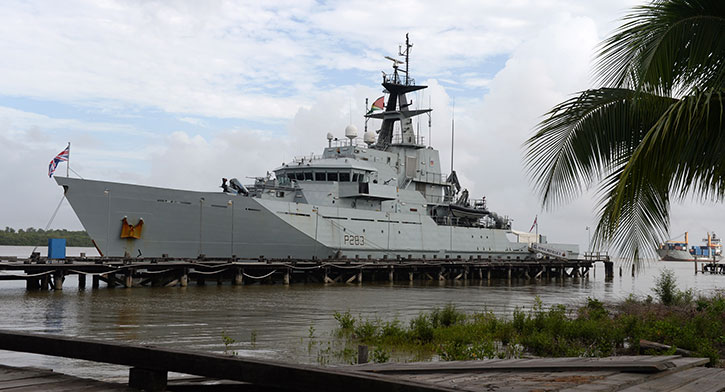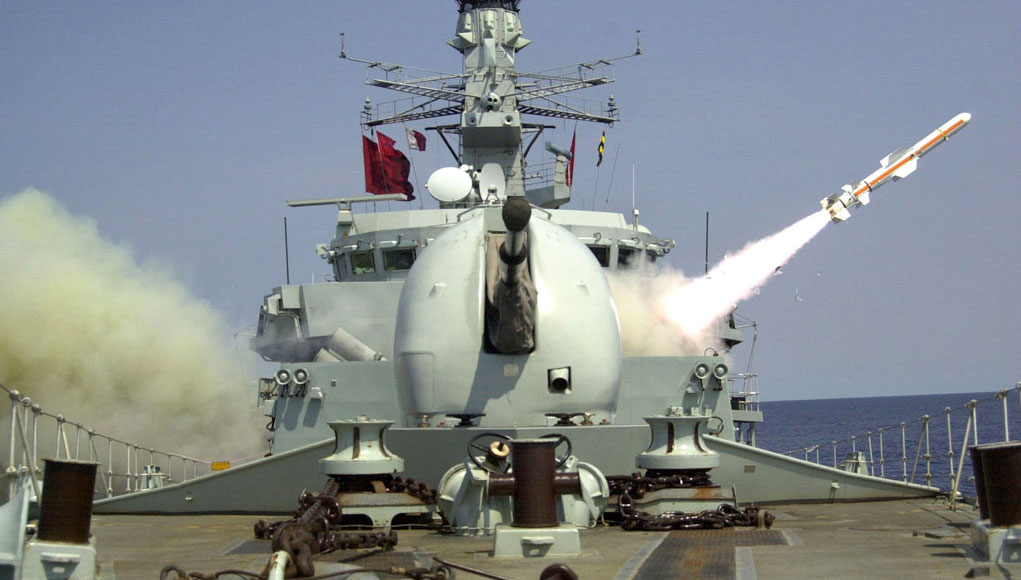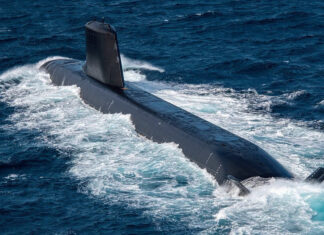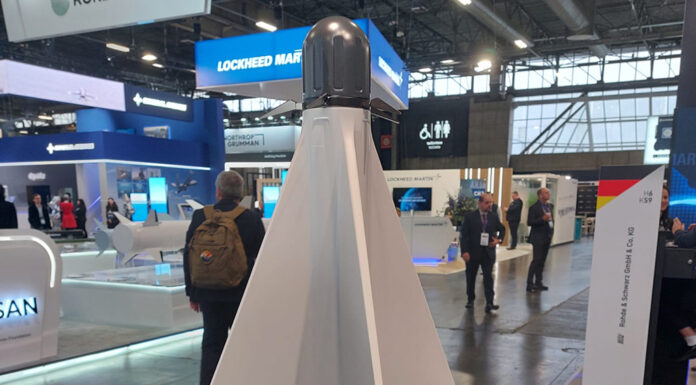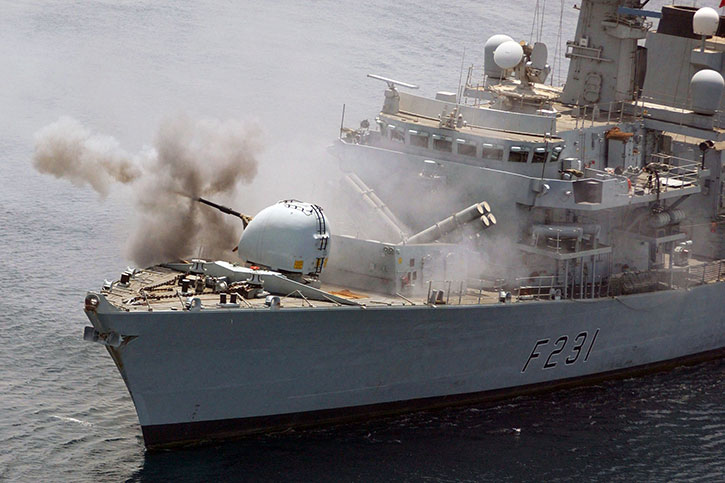
Even after downsizing in recent decades the Royal Navy remains one of the largest world navies. The most recent Strategic Defense and Security Review (SDSR) published in 2015 confirmed the British government intends to maintain the current sea power.
This commitment will require the modernization and replacement of the current anti-submarine fleet comprising 13 Type 23 Duke class frigates that will reach the end of their service life over the next decade. The new class selected for this role is based on BAE Systems’ ‘Global Combat Ship’ design.
As 1:1 replacement was ruled out by the SDSR the review recommended splitting the buy between eight fully equipped Type-26 multi-mission frigates at a cost of £8 billion, and five more modest ‘general purpose’ frigates (GPFF) to be designated Type 31. Type 26 will be dedicated primarily to anti-submarine warfare, supporting the carrier groups and strategic submarines while the lighter Type 31s will serve in other defense tasks and international deployments.
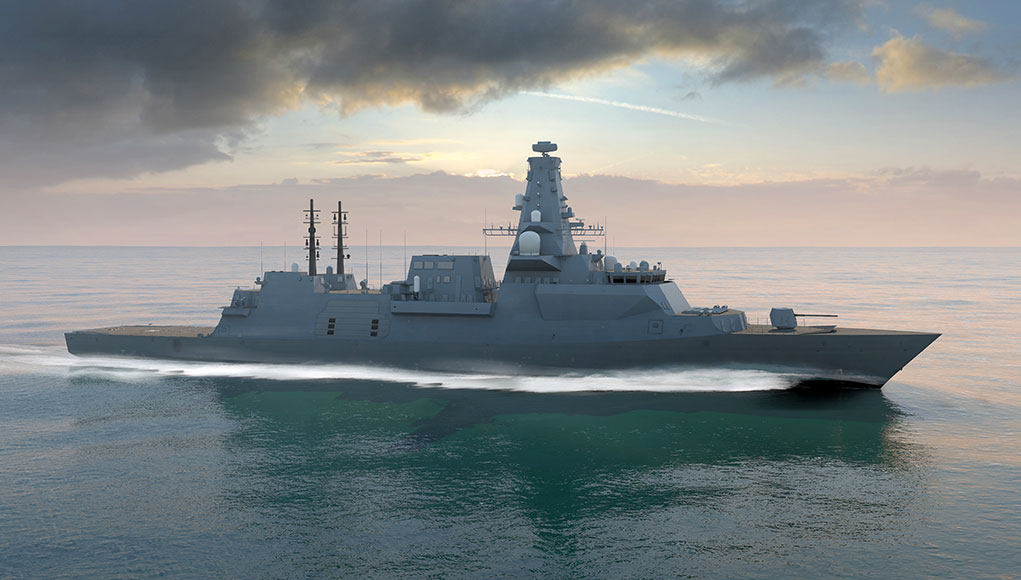
In July 2016, BAE revealed two General Purpose Ships designs, (Avenger-class and the Cutlass-class) to address the requirement but no decision was taken by MOD. To date, BAE Systems was awarded £3.7 billion to build the first three Type-26 boats. Work on the first frigate, HMS Glasgow, began in July 2017. According to schedule, the Glasgow will be commissioned in 2021 and the eighth of this class is expected to enter service in the mid-2030s.
Related post: Type 26 Global Combat Ship
It is yet unclear whether the new vessels will be ready in time to replace the older frigates as they reach the end of their service. The first Type-23 to be phased out in 2023, others will follow in 12 months intervals. If Type 26s will not be delivered on time, the fleet will reduce to a historic low in the coming decade.
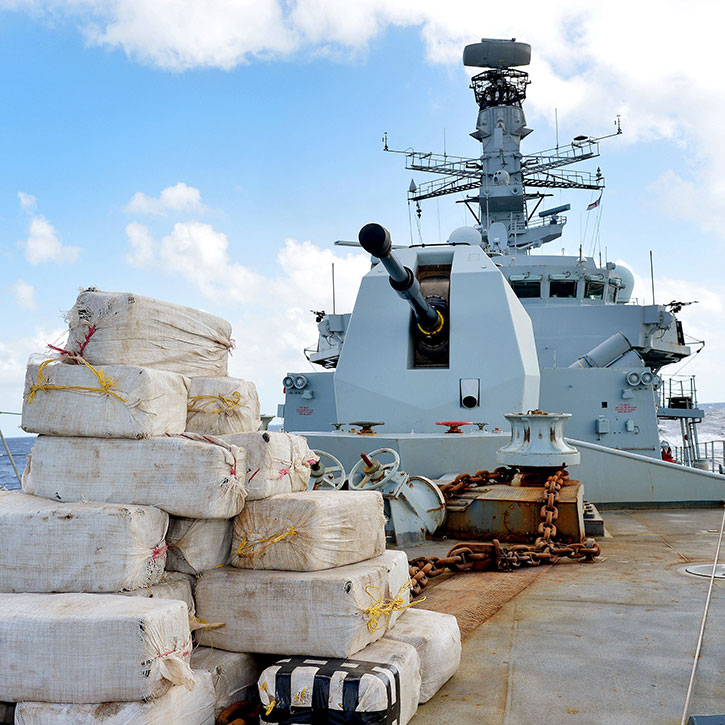
By the mid-2030, when all 13 frigates are delivered, the Royal Navy will return to the fleet size that meets its responsibilities. “This could enable a more frequent, or even a permanent, presence in parts of the world where we have admittedly been spread thin in recent decades, “ Burton added. According to Burton, the opening of a new naval base in Bahrain, HMS Jufair, in the next few years will ‘cement the Royal Navy’s commitment to the Gulf, and serve as a springboard for a more frequent presence in Asia-Pacific.’
Another shipbuilding program currently undergoing is the construction of five River Class OPVs. The first will be operational next year. The Royal Navy currently operates four Batch 1 Offshore Patrol Vessels, one based in the Falkland Islands and three at HMNB Portsmouth, operating globally on tasks ranging from counter-narcotics operations to Atlantic patrols.
